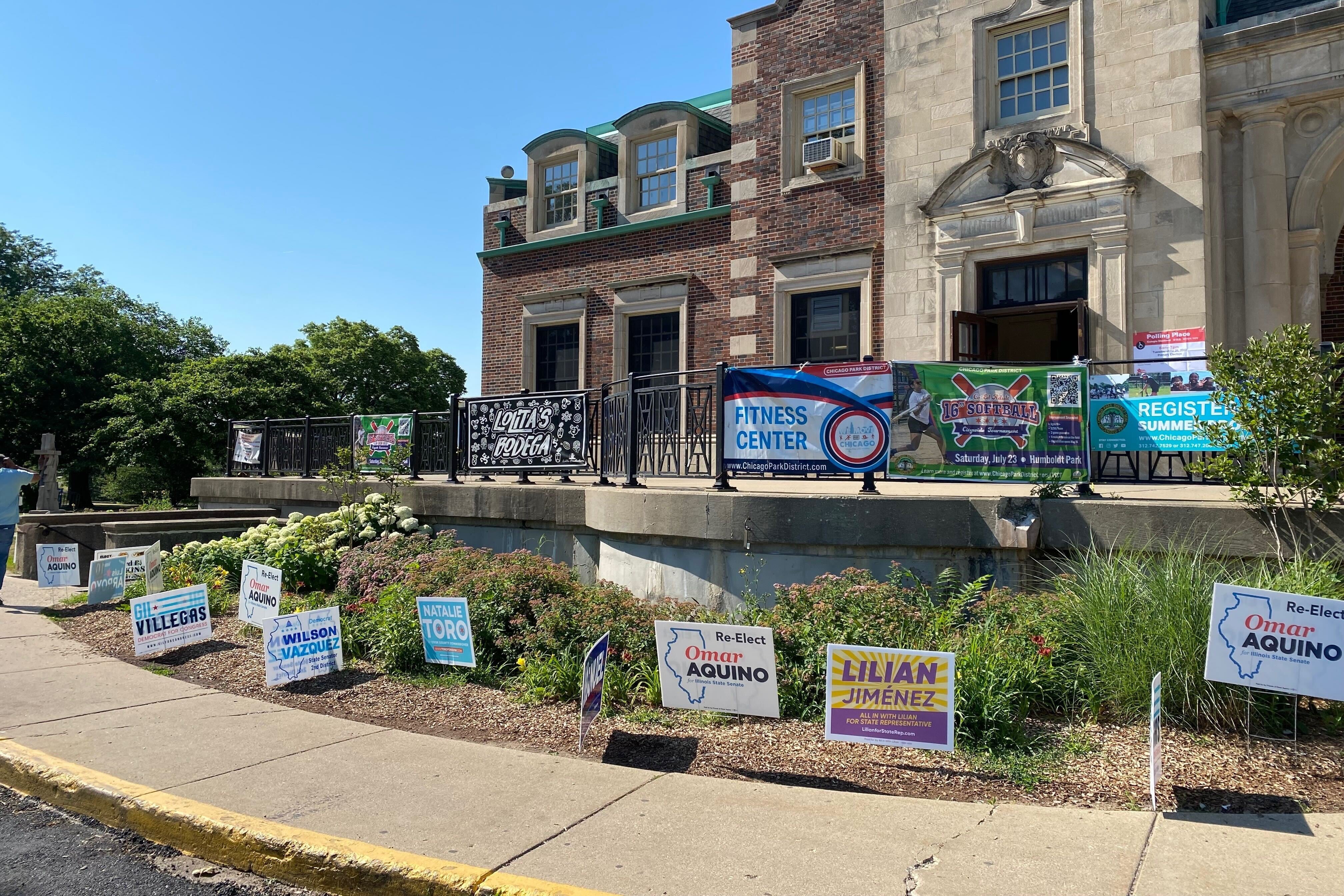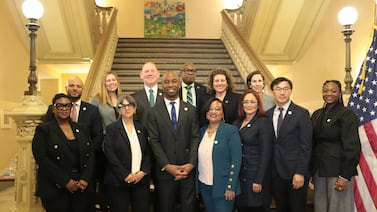Here’s a summer job high schoolers don’t typically have on their resume: election judge.
For Aidan Keefe, 17, it’s the best kind of gig. Not only does it pay well – $230 for the day – but he’s excited about it.
“I’m passionate about it and I think when someone brings passion into something, you know, it’s contagious,” Keefe said, adding that he thought his passion would make voters more excited about exercising their civic duty.
Keefe is one of 551 high school election judges assigned to work some of the 1,094 polls in and around Chicago during today’s primary election, according to Max Bever, director of public information at the Chicago Board of Elections.
Student election judges play an important role, Bever said, because polling places cannot open if no election judges are available. Students have been helping the elections board staff the polls for more than 20 years through a partnership with Mikva Challenge, an organization that works to get young people involved in public service.
The June 28 primary marks the first election students will work as election judges since the COVID-19 pandemic put a pause on the program, said Meghan Goldenstein, senior director of strategic initiatives and elections programs at Mikva Challenge.
But this year’s primary brought a new wrinkle. Mikva usually enlists teachers to help recruit more than 1,500 students to work as election judges. This year, because of redistricting after the 2020 census, Illinois’ primary is happening in the summer, instead of March.
Keefe, a rising senior at Jones College Prep, had just started a summer internship with Alderman Scott Waguespack when he heard about working as an election judge through Mikva. He has already encouraged younger friends to work as election judges when they are old enough, he said.
The students are treated like any other poll worker, with the same hours, pay, training, and responsibilities, Goldenstein said.
On election day, judges arrive at 5 a.m. – an hour before polls open – and stay until reports are completed after polls close at 7 p.m., according to the Chicago Board of Election Commissioners. First-time judges are paid $230 for attending online training and working on election day.
Participating students are high school juniors or seniors who have a minimum GPA of 3.0 and permission from their principal and parents.
They can expect a busy day on election duty.
The early voting period leading up to the primary saw decent turnout, with 115,545 ballots cast as of Monday evening, Bever said. In the previous gubernatorial primary in 2018, 109,281 ballots were cast during early voting and in 2014, 36,707 ballots were cast during early voting. The election day vote tally was 129,509 in 2018 and 42,358 in 2014.
Melanie Garcia, 16, had been involved in other Mikva programs when an email about working as an election judge got her attention. Her first language is Spanish, which will help her serve her community at the polls.
“A bunch of people in my community, they only speak Spanish,” Garcia said. “So I think it’s definitely helpful to have an election judge that can speak Spanish.”
Garcia is a rising senior at Northside College Prep and not yet eligible to vote. She said young people who are eligible to vote should do so and those who are not yet old enough can participate in other ways.
According to Goldenstein, students who work as election judges through Mikva often continue to do so after leaving high school and are more likely to vote.
Ciera Johnson, 22, participated in Mikva when she attended Lane Tech College Prep. She lives in West Humboldt Park and now attends Northern Illinois University. Johnson said Goldenstein emailed her earlier this year about working as an election judge and she decided to apply.
Johnson saw it as an opportunity to encourage her friends and other young people to get involved in government.
“In order to make our society representative of who we are,” Johnson said, “then we have to get involved.”
Eileen Pomeroy is a reporting intern for Chalkbeat Chicago. Contact Eileen at epomeroy@chalkbeat.org.





